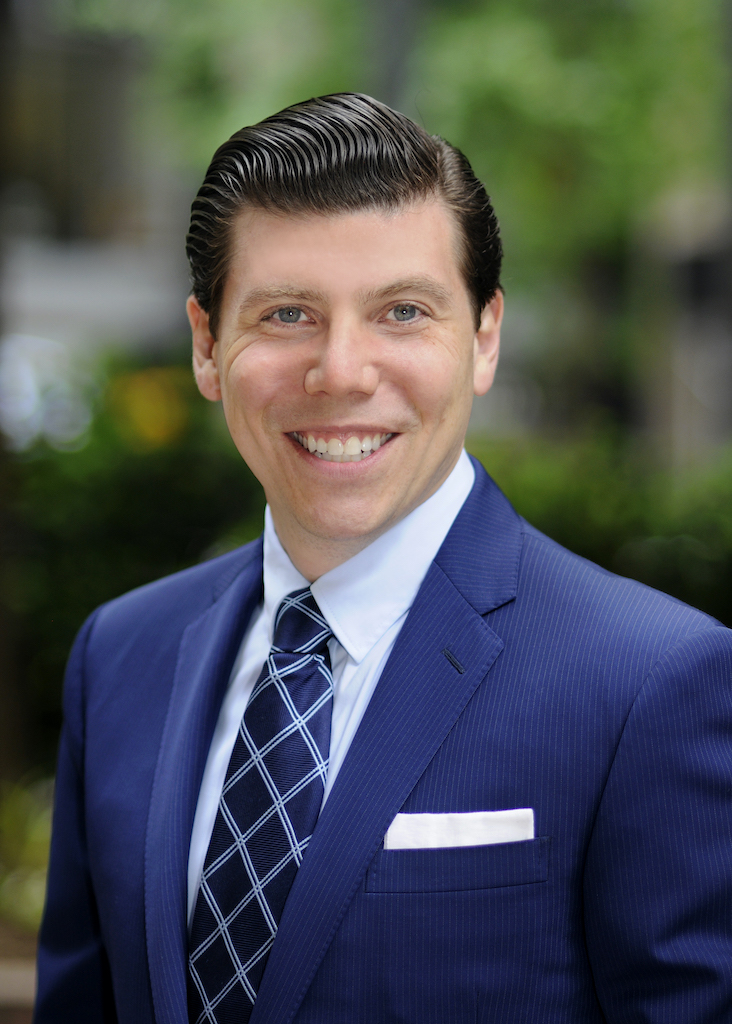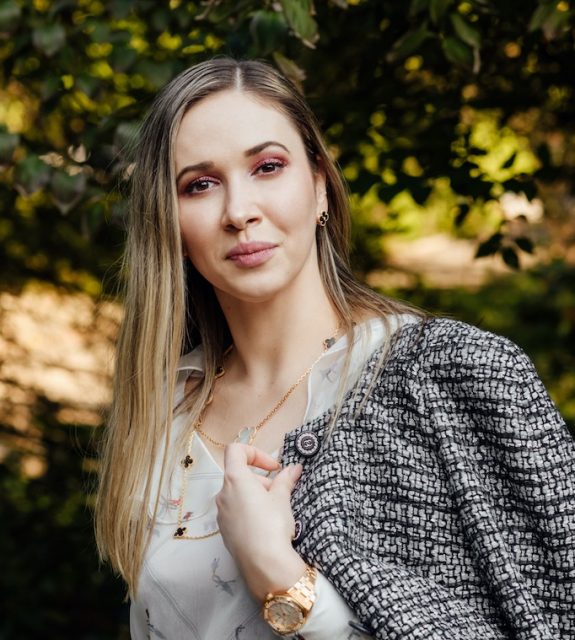The founding partner and practice director of CCRM New York. He is board-certified in both reproductive endocrinology and infertility and obstetrics and gynecology. Brian Levine, M.D. leads the industry in normalizing open dialogue about infertility— a medical condition affecting 1 in 8 couples— and educates prospective parents on a national level. Over the years, Dr. Levine has been cited as one of the nation’s leading fertility experts in The New Yorker, New York Post, NBC, CNN, Avenue Magazine among others, offering valuable insight on everything from fertility misconceptions, egg-freezing 101, to how men can boost their fertility.
 My greatest achievement:
My greatest achievement:
My greatest professional achievement is helping start CCRM New York. As someone who has done all their graduate, medical education and professional training in New York City, I’ve always been acutely aware that a NYC patient not only wants the best care possible, but the best patient experience! From my initial phone call in 2013 with Dr. William Schoolcraft, the founder of CCRM, where we talked about my desire to make CCRM accessible to NYC patients without the need to fly to Denver, to our conversations about our collective potential to create a comprehensive reproductive health center that supports its patients from the moment they arrive to the moment they graduate, I knew that we could build something great.
Together with my incredible partners, our tireless staff, and our amazing scientific and administrative support in Colorado, we have truly built a fertility clinic unlike any other. As I look back at the 10,000+ patients that we have treated, the families we helped start, the families we helped grow, and those who have been able to protect and preserve their fertility, I am truly in awe of what we have done.
The future of my field is:
The future of reproductive medicine is going to be rooted in patients having complete transparency into their fertility status. Unfortunately, many patients are unaware of their fertility potential and only learn that they need treatment once they have had trouble getting pregnant, staying pregnant, or seek an evaluation to freeze their eggs or sperm.
If patients have unfettered access to accurate and reproducible testing that is coupled with personalized data, such as integration from wearables and apps), then many patients will hopefully speak to their Ob/Gyn or seek a fertility doctor before struggling for 6 to 12 months that are usually filled with heartache and disappointment.
The biggest misconception about my field is:
The biggest misconception about reproductive endocrinology and infertility is that infertility is a female disease! According to the Centers for Disease Control (CDC), approximately 9% of men and 11% of women of reproductive age in the United States have experienced fertility problems. In fact:
- In one-third of infertile couples, the problem is with the man.
- In one-third of infertile couples, the problem can't be identified or is with both the man and woman.
- In one-third of infertile couples, the problem is with the woman.
With that said, fertility does decline with age in both men and women, but the effects of age are much greater in women than men.
My most requested procedures are:
My most requested procedures are in-vitro fertilization (IVF), oocyte cryopreservation (egg freezing) and frozen embryo transfers (FET). In examining our success rates (which are publicly available), one can see that our IVF and resultant frozen embryo transfer success rates in every age category are among the highest in the world with the nearly the lowest reported miscarriage rates regardless of age.
What surgical advancements are you most excited about?
As a fervent early morning reader, I am constantly learning about new processes and procedures that we can introduce to improve the care that we provide. With that said, I’m most excited about some of CCRM’s research that has yet to be published on advancements in the genetic assessments of embryos. Much is still unknown about why a small subset of patients do not get pregnant even under ideal conditions. We are finally starting to learn about what the embryo can tell us about the environment it requires to have an optimal outcome. I imagine in the next few years, we will flip many conversations about “if” someone will get pregnant, to “when” someone will get pregnant with data-derived certainty.
What are you best known for?
In reading the hundreds of reviews that patients have posted online about their experiences with me and our clinic, and in speaking to my patients, I have learned that patients speak most about their “detail-oriented experience” with me and my partners. I truly believe that every patient should be treated as if they are a family member.
Unfortunately, many fertility clinics have become too big and too busy to offer personalized care. This lack of attention to detail is not felt by most patients, but the toughest cases seem to slip through the proverbial cracks.
Since our first patient, I have always made it a priority to personally review all available records, take a thorough medical history, perform a comprehensive physical exam, and repeat all necessary and relevant laboratory and imaging assessments. In return, when we make the decision to proceed with a certain treatment paradigm, our patients are not only aware of the risks, benefits and alternatives, but they are also best setup for a successful outcome.
What is your most memorable patient reaction?
In early 2016, I met a patient who had done multiple rounds of IVF and even more rounds of unsuccessful frozen embryo transfers. She told me that she was going to do one more cycle of IVF at another clinic to create embryos for a gestational carrier. In the summer of 2017, in absolute kismet, we shared a car on a ride-sharing app, and she told me that she finally had become a mother through the help of surrogacy. She told me she was considering going through a surrogate for their next child, since she could not get pregnant. As we rode down Park Avenue, our conversation continued, and she bluntly asked if I agreed with the countless specialists that had said she could not and should not try to get pregnant. I asked her to collect and share her medical records and I would give her my honest opinion.
After reading hundreds of pages of medical charting, and cross-referencing with countless medical journals and colleagues, I noticed that certain data points were simply overlooked, and concluded that she should indeed try, just one more time. In early December 2018, I transferred a single, genetically normal embryo using a proprietary protocol I had developed, and she successfully gave birth to a beautiful baby in August 2019.
The most memorable part of this patient’s experience:
Truly, my most memorable patient experience, is when I told her that she was pregnant – she said it was impossible, every leading expert had agreed it would not be possible, and I had to explain that she just did what no one thought she could do, with the help of an amazing team.
What sets my practice apart:
What sets our practice apart from our competitors is our commitment to treating every patient like an individual. We are relentless in our pursuit of creating the best treatment paradigms for every patient. We are the “anti-factory.” We make ourselves available to our patients, we give our patients unencumbered access to their treatment team, and we let patients know from the moment they come to their first appointment, that their success is our success, and that we are aligned in helping them achieve their goals.
What I love most about my profession is:
What I love about my profession is our ability to truly help people achieve their hopes and dreams. Being able to even play a small part in helping someone start or grow their family is unbelievably rewarding. I love being a fertility doctor!
Career defining procedure?
While many clinics have a handful of standardized approaches on how to prepare a patient’s body for a frozen embryo transfer, I have always focused on creating patient-tailored protocols that are derived from the patient’s medical data and our collective years of experience in treating truly the most difficult patients.
What new services are you excited to offer?
I am incredibly excited that we will soon be able to offer gestational surrogacy – the practice whereby a woman is financially compensated to carry and deliver a child that is not derived from her eggs, to ultimately return that baby to the intended parents who paid her. This practice is either legal or not prohibited in all American states except Louisiana, Michigan and, so far, New York State, where it becomes possible as of February 15, 2021.
Once surrogacy is permissible in New York, we will truly be able to offer the full bevy of outstanding reproductive care that our patients deserve and desire.
For more information, visit Dr. Brian A. Levine's social media:







 My greatest achievement:
My greatest achievement:
















